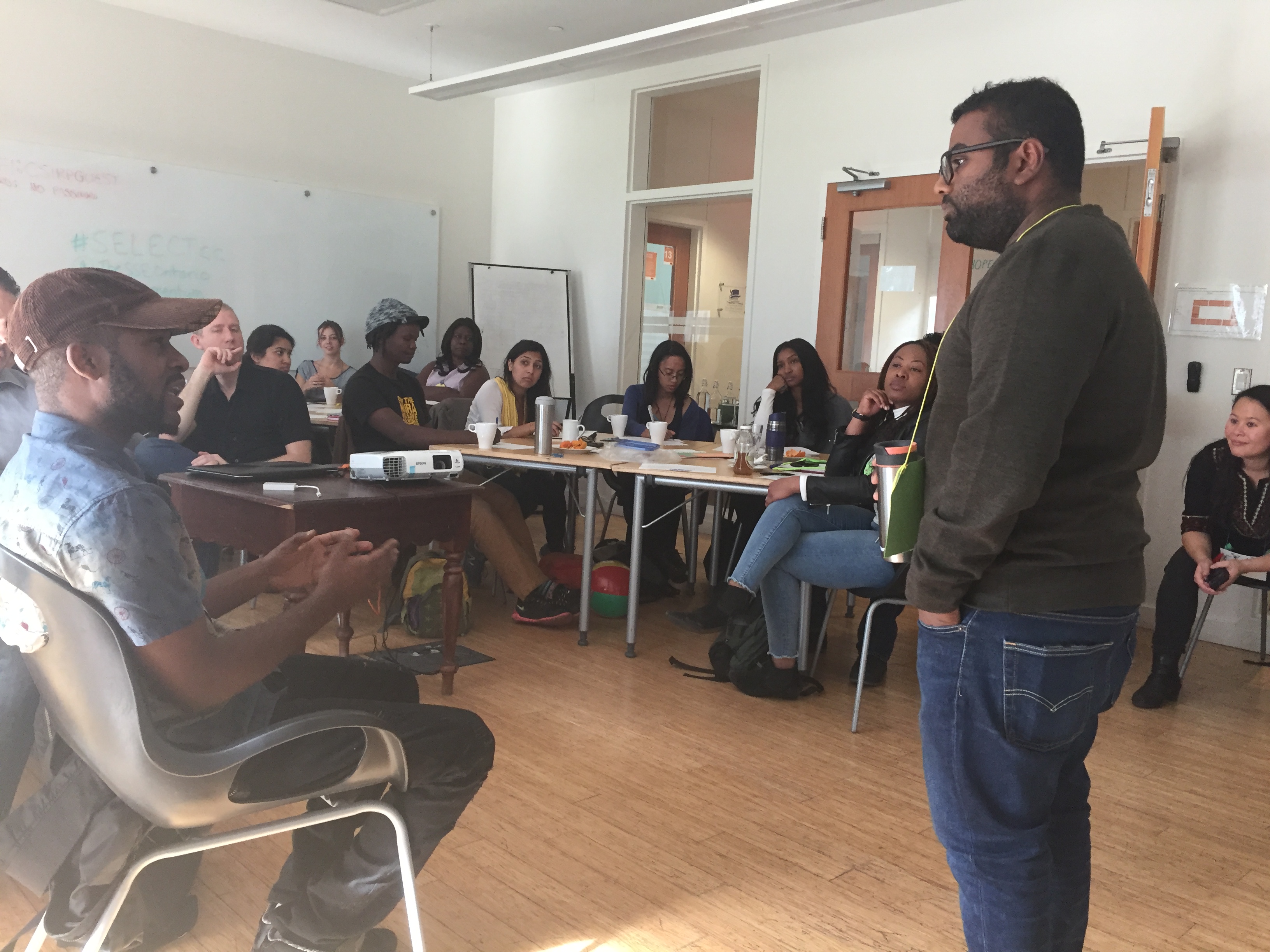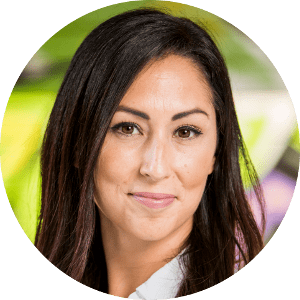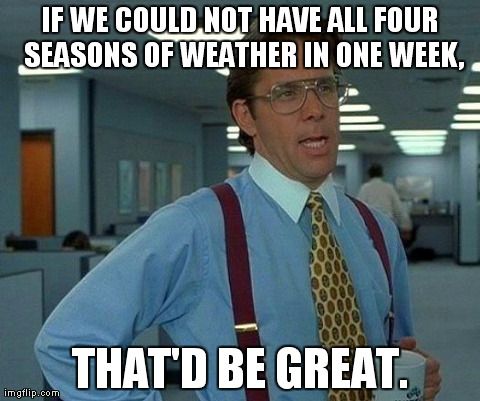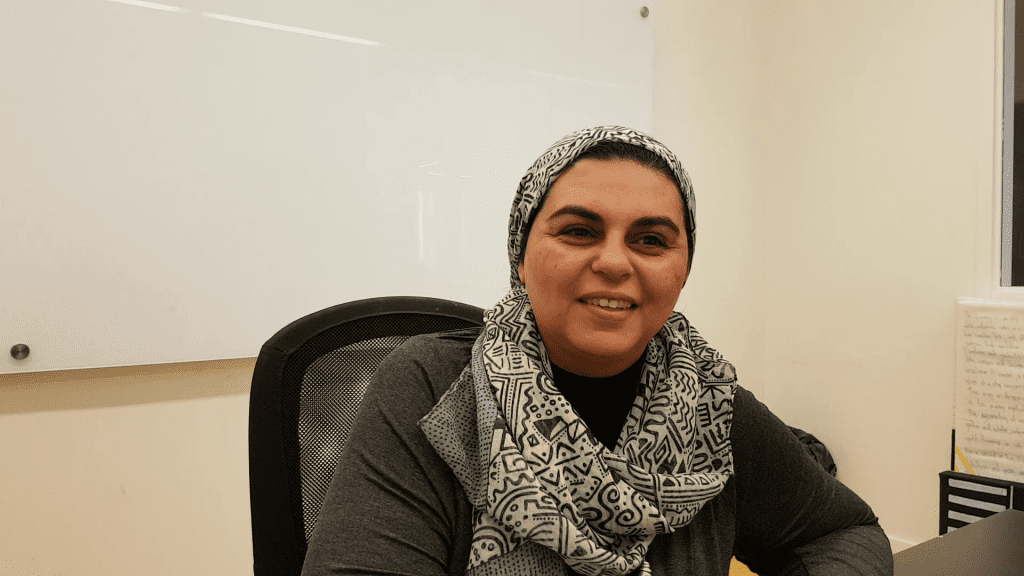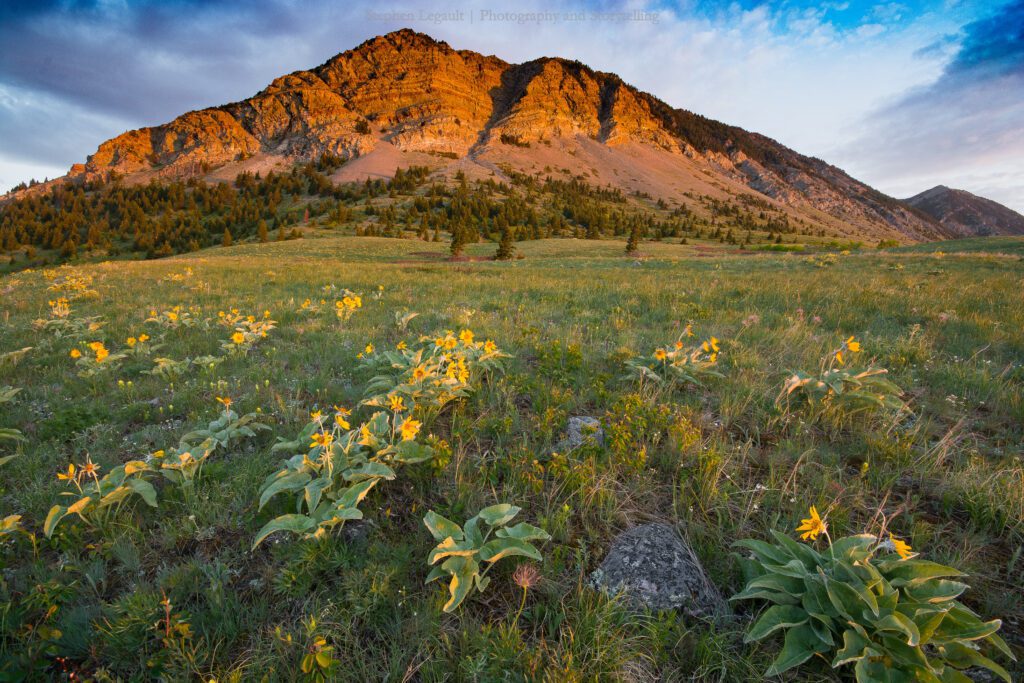As Canadians, we often joke about how extreme our weather can get from one day to the next. When it is -25 C out we like to chuckle (or chatter our teeth) and say “how about that global warming, eh?” All jokes aside, we know climate change is real. We see it hitting home (floods anyone?) and we know it demands action. But taking meaningful action means understanding how climate change affects you and knowing how you can be part of the solution.
In Ontario, plans to tackle climate change are in motion. The province made significant commitments to cut down on carbon emissions and outlined a plan to help Ontario businesses and residents take action against climate change through the choices they make. Part of that plan includes building capacity in Ontario-based organizations that engage local communities on these issues by building awareness about the different actions people can take to be part of the solution.
The School for Social Entrepreneurs (SSE) in Toronto is one such organization. They recently launched the Social Entrepreneurial Leaders Enabling Climate Transition (SELECT) program. SSE’s goal is to engage marginalized communities in Toronto on the impacts of climate change and support them in taking action.
I sat down with Marjorie Brans, managing director at SSE, and Rania Younes a participant of the SELECT program, and director of programs at the Canadian Arab Institute, to understand SELECT’s approach to building climate change awareness.
Marjorie, what is the SELECT program about?
It’s about communities selecting the future they want. We believe many communities want socially and economically just communities that are climate ready, green and sustainable. Ones that are prepared for the extreme weather brought on by climate change.
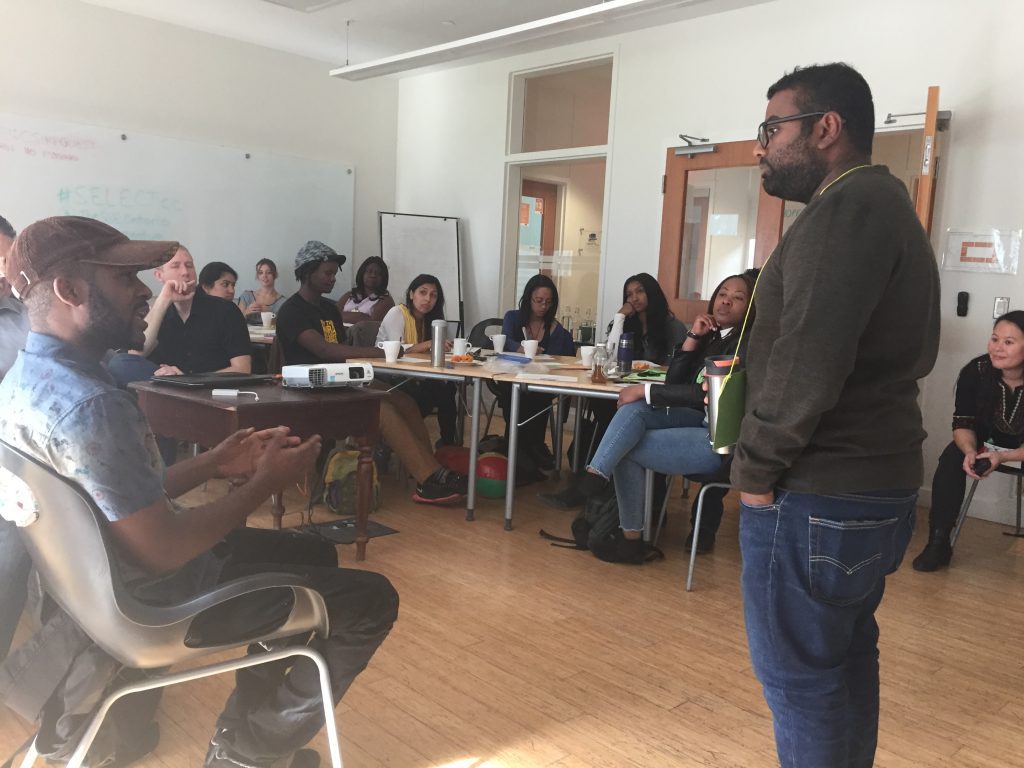
Why do you think it’s important to engage community organizers of socially marginalized communities on climate change?
Marginalized communities in Canada are not very involved in the conversation around climate change; they’re not being regularly engaged. So I don’t see how we can have a winning climate change strategy if we don’t include these communities in the conversation. SELECT is an opportunity for established community organizers to understand how climate change will affect their communities and mobilize them to take action and be prepared.
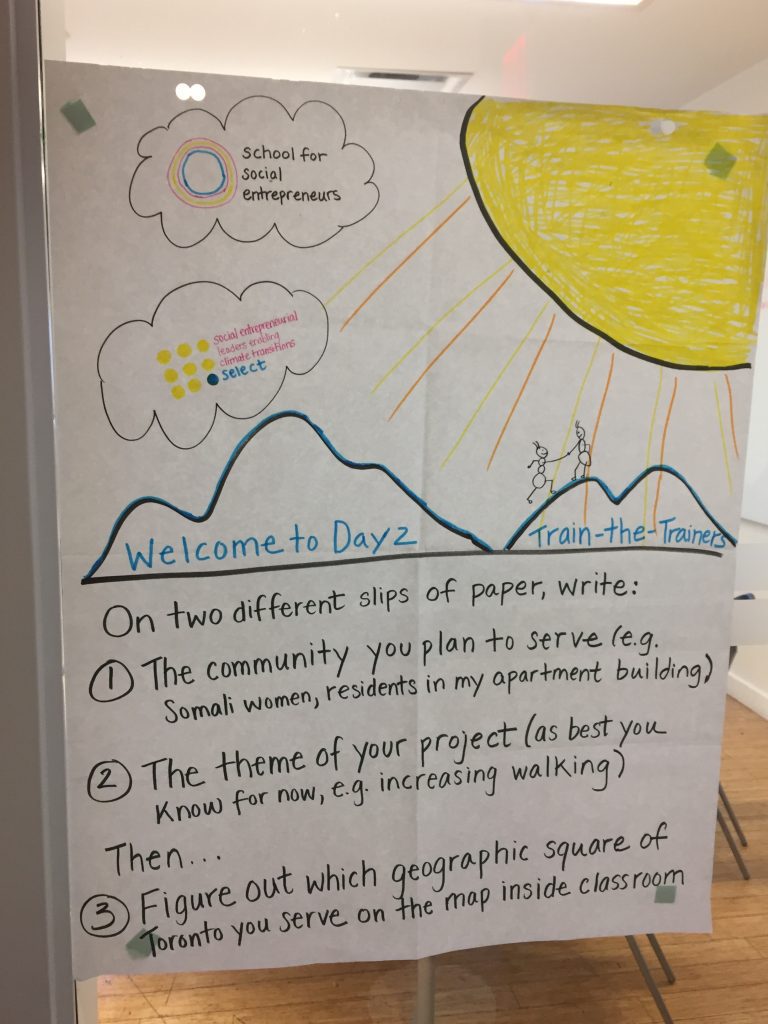
Rania, what are some of the key lessons you’ve taken away from SELECT?
I learned that you have to do this as a team. You need to be inspired by the people around you. I have met so many different people through SELECT who have worked on different initiatives and at different levels who have really inspired me. Learning from them and what they have done, and seeing how they approached their particular project has given me that boost, the confidence, that I can do this too.
I also learned a lot about climate change. In the first two days, we were given a lot of information that I wasn’t aware of. We learned about the bigger issues surrounding climate change – issues, I would see on the news but I would look at and say, ‘I don’t know what that is.’
Now I have a deeper understanding of climate change and I understand why it matters.
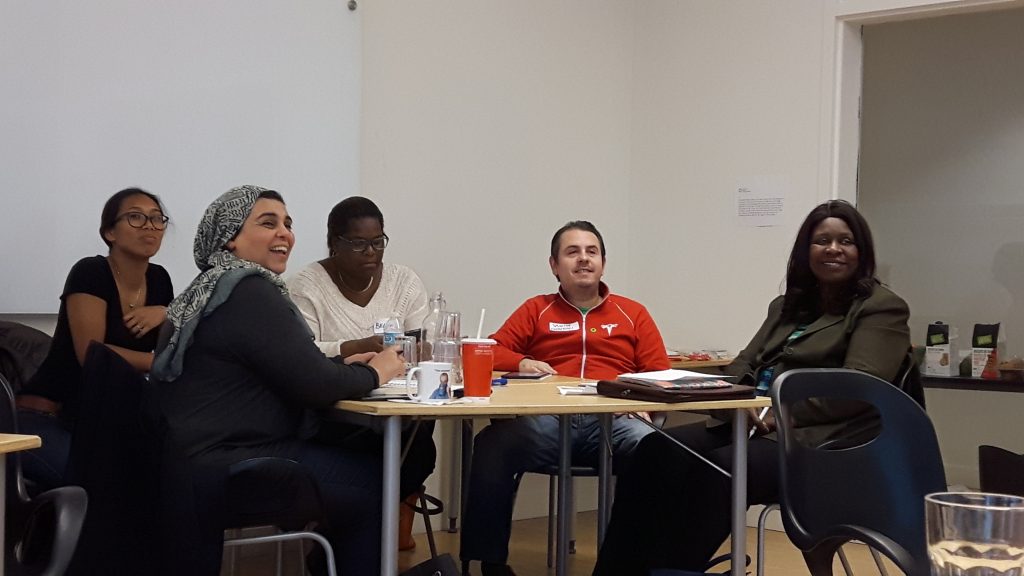
How do you plan on sharing this knowledge with your community?
My community is very disengaged. They know there is a conversation about climate change but they don’t really know how it impacts their lives. I’m hoping to take what I’ve learned from SELECT to my community through a series of educational workshops in collaboration with the Arab Community Centre, to help newcomers to Canada understand climate change and how it will affect their lives. I know what matters to my community, I know how to approach them and now I know how to engage them in conversations about climate change through the things that they value.
Programs like SELECT are necessary, valuable and effective. Engagement is important but how people are engaged is even more important. The effects of climate change will be experienced differently from one community to the next. Taking action starts with knowing what is possible for you and in some cases, your community.



